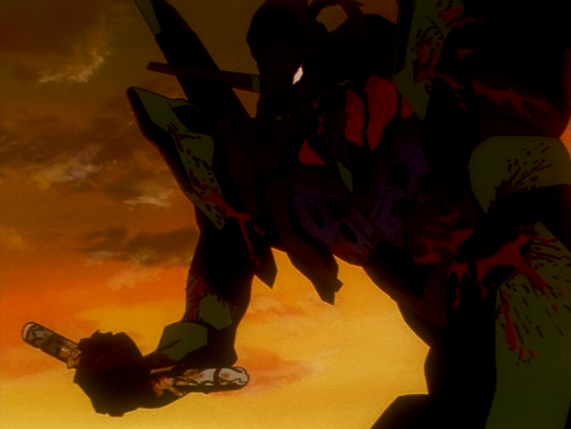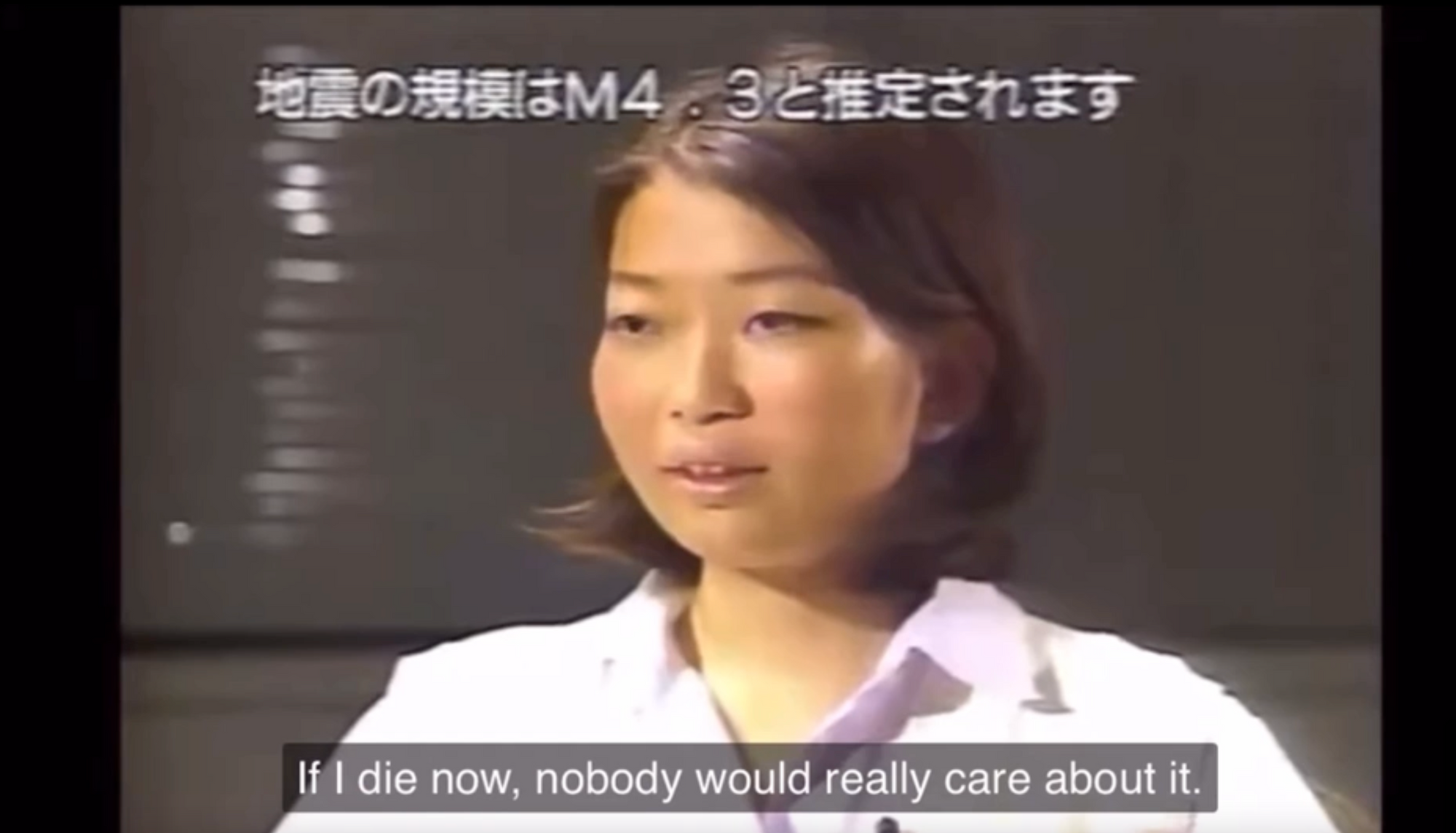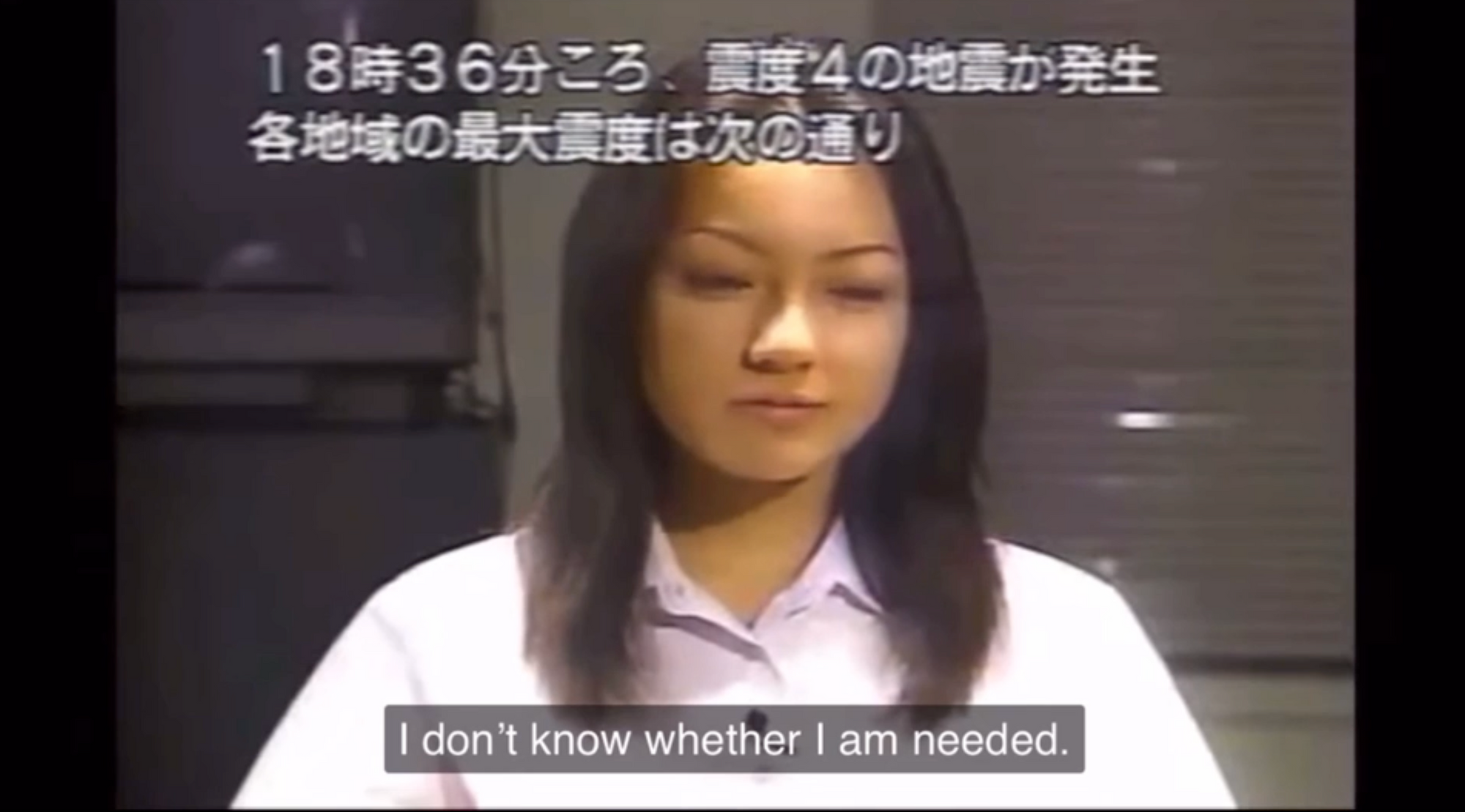Pulling the Plug: Neon Genesis Evangelion (Hideaki Anno, 1995 - 1996) // Daniel Isn’t Real (Adam Egypt Mortimer, 2019)
A few thoughts on agency, monsters, and psychological annihilation via cartoon.

Being a man feels like being strapped into a skyscraper-sized monster that is made out of your dead mother and co-piloted by your distant, emotionally abusive father who will literally turn all of humanity into goo instead of going to therapy. This, anyway, is what I’ve picked up from Neon Genesis Evangelion, and I have no reason to believe it's lying to me.
I watched Evangelion with my husband, who was re-watching and wanted someone to talk to about the experience. Really, I was doing what therapists call “empathetic witnessing;” the series starts off weird, sort of a post-apocalyptic kaiju Buffy, and ends in a place so staggeringly bizarre that I think it might inflict real psychological damage to watch it without processing afterward in a safe space. This video — in which three bubbly high school girls binge-watch Evangelion and leave questioning the value of their own existence — just about sums it up.


Evangelion also seems to have a reputation as a trans thing, maybe specifically a trans femme thing. Emily St. James did a whole recap series on her newsletter, which I haven’t read yet because I didn’t want to get spoiled. Whereof I cannot speak, thereof I must be silent; I don’t know how to read the show through a transfeminine lens, and trying would make me sound like an idiot. Still, Evangelion is a viscerally unsettling work of body horror, which makes it, inevitably, a bit trans-y; it’s preoccupied with all the different ways bodily autonomy can be stripped and compromised and violated, the ways that vulnerable flesh is fed into systems of harm.
Most of the time, Shinji is an ordinary fourteen-year-old — scrawny and horny and whiny, prone to throwing tantrums and running away from home. He is continually surrounded by commanding, powerful, gratuitously large-breasted women, and he is frightened by their superior sexual power. Otherwise action-packed episodes pause to feature two-minute-long shots of Shinji pouting and staring at his shoes, because that’s just what Shinji gets up to. He’s a real Debbie Downer, about everything, from mile-high Lovecraftian abominations to roommate disputes.
If I were to write a TV show, I would try to hang it on someone other than Shinji. Still, the mile-high Lovecraftian abominations are neat. In the Neon Genesis Evangelion universe, Earth’s population has been all but wiped out by the angels, huge, unfathomable, extra-dimensional beings. The only defense against the angels are synthetic, half-mechanical monsters known as EVAs, which can only be piloted by fourteen-year-old children. Why? I don’t know. Someone mentions that EVAs can only be piloted by fourteen-year-old children, and the show expects you to roll with it, which is how things on Neon Genesis Evangelion tend to go.
At any rate: The EVA program is run by Shinji’s distant and emotionally withholding Dad (sure, why not) and so, when an angel arrives, Shinji straps into a giant killing machine made of human flesh (right) which is haunted by the spirit of his dead mother (?????) and sets out to win his father’s love. Battling angels is a gory process, with lots of disemboweling and swords through skulls and limbs being ripped off, and for reasons known only to Shinji’s father, who is not great at planning if we are honest, the pilots can feel all this as if it is happening to their own bodies. Shinji gets impaled, dismembered, and set on fire within the first twenty minutes of the first episode. He emerges with severe post-traumatic stress and twenty-five more episodes to go.

Thus, we come to the scene I want to discuss. Much of the show’s conflict comes down to whether Shinji wants to keep piloting the EVA, or whether he’s even capable of the ruthless violence his job demands. At some point, Shinji’s father figures out a way to take the decision out of his son’s hands. Dad installs a “dummy plug,” which allows him to turn off Shinji’s input and operate the EVA remotely. When a different EVA goes rogue, Dad (re)traumatizingly flips the switch and forces Shinji to beat, mutilate and messily dismember his own classmate with his bare hands.